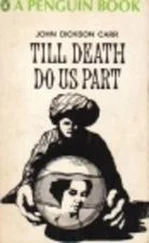John le Carr� - Smiley's People
Здесь есть возможность читать онлайн «John le Carr� - Smiley's People» весь текст электронной книги совершенно бесплатно (целиком полную версию без сокращений). В некоторых случаях можно слушать аудио, скачать через торрент в формате fb2 и присутствует краткое содержание. Жанр: Триллер, на английском языке. Описание произведения, (предисловие) а так же отзывы посетителей доступны на портале библиотеки ЛибКат.
- Название:Smiley's People
- Автор:
- Жанр:
- Год:неизвестен
- ISBN:нет данных
- Рейтинг книги:5 / 5. Голосов: 1
-
Избранное:Добавить в избранное
- Отзывы:
-
Ваша оценка:
- 100
- 1
- 2
- 3
- 4
- 5
Smiley's People: краткое содержание, описание и аннотация
Предлагаем к чтению аннотацию, описание, краткое содержание или предисловие (зависит от того, что написал сам автор книги «Smiley's People»). Если вы не нашли необходимую информацию о книге — напишите в комментариях, мы постараемся отыскать её.
Smiley's People — читать онлайн бесплатно полную книгу (весь текст) целиком
Ниже представлен текст книги, разбитый по страницам. Система сохранения места последней прочитанной страницы, позволяет с удобством читать онлайн бесплатно книгу «Smiley's People», без необходимости каждый раз заново искать на чём Вы остановились. Поставьте закладку, и сможете в любой момент перейти на страницу, на которой закончили чтение.
Интервал:
Закладка:
Smiley turned a page and continued writing. 'Go on, please,' he said.
First, said the priest, Grigoriev was to open a Swiss bank account. The priest handed him a thousand Swiss francs in one hundred notes and told him to use them as the first payment. He should open the account not in Berne, where he was known nor in Zurich, where there was a Soviet trade bank.'
'The Vozhod,' Grigoriev explained gratuitously. 'This bank is used for many official and unofficial transactions.'
Not in Zurich, then, but in the small town of Thun, a few kilometres outside Heme. He should open the account under the name of Glaser, a Swiss subject : 'That I am a Soviet diplomat!' Grigoriev had objected. 'I am not Glaser, I am Grigoriev!'
Undeterred, the priest handed him a Swiss passport in the name of Adolf Glaser. Every month, said the priest, the account would be credited with several thousand Swiss francs, sometimes even ten or fifteen. Grigoriev would now be told what use to make of them. It was very secret, the priest repeated patiently, and to the secrecy belonged both a reward, and a threat. Very much as Smiley himself had done an hour before, the priest boldly set out each in turn. 'Sir, you should have observed his composure towards me,' Grigoriev told Smiley incredulously. 'His calmness, his authority in all circumstances! In a chess game he would win everything, merely by his nerves.'
'But he was not playing chess,' Smiley objected drily.
'Sir, he was not,' Grigoriev agreed, and with a sad shake of his head resumed his story.
A reward, and a threat, he repeated.
The threat was that Grigoriev's parent Ministry would be advised that he was unreliable on account of his philandering, and that he should therefore be barred from further foreign postings. This would cripple Grigoriev's career, also his marriage. So much for the threat.
'This would be extremely terrible for me,' Grigoriev added, needlessly.
Next the reward, and the reward was substantial. If Grigoriev acquitted himself well, and with absolute secrecy, his career would be furthered, his indiscretions overlooked. In Berne he would have an opportunity to move to more agreeable quarters, which would please Grigorieva; he would be given funds with which to buy himself an imposing car which would be greatly to Grigorieva's taste; also he would be independent of Embassy drivers, most of whom were neighbours , it was true, but were not admitted to this great secret. Lastly, said the priest, his promotion to Counsellor would be accelerated in order to explain the improvement in his living standards.
Grigoriev looked at the heap of Swiss francs lying on the desk between them, then at the Swiss passport, then at the priest. And he asked what would happen to him if he said he would rather not take part in this conspiracy. The priest nodded his head. He too, he assured Grigoriev, had considered this third possibility, but unfortunately the urgency of the need did not provide for such an option.
'So tell me what I must do with this money,' Grigoriev had said.
It was routine, the priest replied, which was another reason why Grigoriev had been selected : 'In matters of routine, I am told you are excellent,' he said. Grigoriev, though he was by now scared halfway out of his skin by the priest's words, had felt flattered by this commendation.
'He had heard good reports of me,' he explained to Smiley with pleasure.
Then the priest told Grigoriev about the mad girl.
Smiley did not budge. His eyes as he wrote were almost closed, but he wrote all the time - though God knows what he wrote, said Toby, for George would never have dreamed of consigning anything of even passing confidentiality to a notepad. Now and then, says Toby, while Grigoriev continued talking, George's head lifted far enough out of his coat collar for him to study the speaker's hands, or even his face. In every other respect he appeared remote from everything and everybody inside the room . Millie McCraig was in the doorway, de Silsky and Skordeno kept still as statues, while Toby prayed only for Grigoriev to 'keep talking, I mean talking at any price, who cares? We were hearing of Karla's tradecraft from the horse's mouth.'
The priest proposed to conceal nothing, he assured Grigoriev - which, as everyone in the room but Grigoriev at once recognized, was a prelude to concealing something.
In a private psychiatric clinic in Switzerland, said the priest, there was confined a young Russian girl who was suffering from an advanced state of schizophrenia : 'In the Soviet Union this form of illness is not sufficiently understood,' said the priest. Grigoriev recalled being strangely touched by the priest's finality. 'Diagnosis and treatment are too often complicated by political considerations,' the priest went on. 'In four years of treatment in our hospitals, the child Alexandra has been accused of many things by her doctors. "Paranoid reformist and delusional ideas... An over-estimation of her own personality... Poor adaptation to the social environment... Over-inflation of her capabilities... A bourgeois decadence in her sexual behaviour." Soviet doctors have repeatedly ordered her to renounce her incorrect ideas. This is not medicine,' said the priest unhappily to Grigoriev. 'It is politics. In Swiss hospitals, a more advanced attitude is taken to such matters.' It was essential that the child Alexandra should go to Switzerland.
It was by now clear to Grigoriev that the high official was personally committed to the girl's problem, and familiar with every aspect of it. Grigoriev himself was already beginning to feel sad for her. She was the daughter of a Soviet hero - said the priest and a former official of the Red Army who, in the guise of a traitor to Russia, was living in penurious circumstances among counter-revolutionary Czarists in Paris.
'His name,' the priest said, admitting Grigoriev to the greatest secret of all, 'his name,' he said, 'is Colonel Ostrakov. He is one of our finest and most active secret agents. We rely on him totally for our information regarding counter-revolutionary conspirators in Paris.'
Nobody in the room, said Toby, showed the least surprise at this sudden deification of a dead Russian deserter.
The priest, said Grigoriev, now proceeded to sketch the manner of the heroic agent Ostrakov's life, at the same time initiating Grigoriev into the mysteries of secret work. In order to escape the vigilance of imperialist counter-intelligence, the priest explained, it was necessary to invent for an agent a legend or false biography which would make him acceptable to anti-Soviet elements. Ostrakov was therefore in appearance a Red Army defector who had 'escaped' into West Berlin, and thence to Paris, abandoning his wife and one daughter in Moscow. But in order to safeguard Ostrakov's standing among the Paris �migr�s, it was logically necessary that the wife should suffer for the traitorous actions of her husband.
'For after all,' said the priest, 'if imperialist spies were to report that Ostrakova, the wife of a deserter and renegade, was living in good standing in Moscow - receiving her husband's salary, for example, or occupying the same apartment - imagine the effect this would have upon the credibility of Ostrakov!'
Grigoriev said he could imagine this well. The priest, he explained in parenthesis, was in no sense authoritarian in his manner, but rather treated Grigoriev as an equal, doubtless out of respect for his academic qualifications.
'Doubtless,' Smiley said, and made a note.
Therefore, said the priest somewhat abruptly, Ostrakova and her daughter Alexandra, with the full agreement of her husband, were transferred to a far province and given a house to live in, and different names, and even - in their modest and selfless way - of necessity, their own legend also. Such, said the priest, was the painful reality of those who devoted themselves to special work. And consider, Grigoriev - he went on intently - consider the effect that such deprivation, and subterfuge, and even duplicity, might have upon a sensitive and perhaps already unbalanced daughter : an absent father whose very name had been eradicated from her life! A mother who, before being removed to safety, was obliged to endure the full brunt of public disgrace! Picture to yourself, the priest insisted - you, a father - the strains upon the young and delicate nature of a maturing girl!
Читать дальшеИнтервал:
Закладка:
Похожие книги на «Smiley's People»
Представляем Вашему вниманию похожие книги на «Smiley's People» списком для выбора. Мы отобрали схожую по названию и смыслу литературу в надежде предоставить читателям больше вариантов отыскать новые, интересные, ещё непрочитанные произведения.
Обсуждение, отзывы о книге «Smiley's People» и просто собственные мнения читателей. Оставьте ваши комментарии, напишите, что Вы думаете о произведении, его смысле или главных героях. Укажите что конкретно понравилось, а что нет, и почему Вы так считаете.









